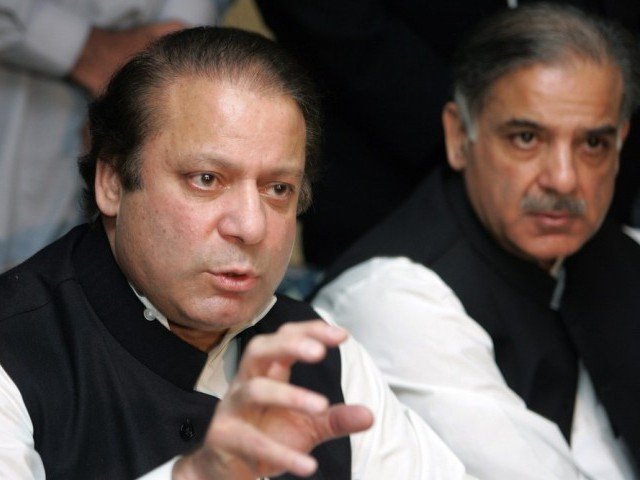
The track record of the NFC members creates doubts about political leaders’ capability, seriousness and commitment to such important national matters.
Before considering constraints in the way of the 9th NFC award, we need to understand what happens in the event of disagreement among its members and secondly, whose interests are mostly affected? The previous award continues under an interim legal arrangement unless a new one is decided whereby the central government’s share remains the same, which is supposed to be reduced in every subsequent award. Deadlock therefore is in the central government’s interest.
Coming to the second part of the question, obviously smaller provinces, such as Sindh, lose an opportunity for a gradual increase in their share in case the NFC award gets delayed. In Sindh, there is already a strong sense of deprivation because, despite being a rich province, it is suffering from extreme poverty, unemployment and poor social development indicators. The situation has become so bad that periodic international studies have started comparing the poor condition of children and women in rural areas of Sindh with the most backward African countries.
Adviser terms NFC award formula a structural problem
The last PPP-led government took up the issue of provincial autonomy. Two main achievements to its credit include the 18th Amendment to the Constitution and the 7th NFC award. The 7th NFC was hailed as a big success from two aspects a) the commission was able to evolve consensus around it after a lapse of 13 years b) it brought in significant changes in its design in favour of the provinces. The NFC award comprises two major components: divisible pool taxes and straight transfers. The major taxes that form part of the divisible pool include taxes collected through the Federal Board of Revenue (FBR) such as income tax and corporation tax, sales tax, central exercise duty, etc, whereas straight transfers are the net revenue from the royalty on oil and natural gas, exercise duty and development surcharges on natural gas. Straight transfers are actually provinces’ money given back to them on the basis of actual collection from each province.
The best thing about the 7th NFC award is that the share of provinces in terms of vertical distribution from the divisible pool taxes went up from 46.25% to 56 and then ran to 57.5%. Secondly, with regard to horizontal distribution of divisible pool taxes, multiple criteria were introduced. Previously, horizontal distribution solely depended on population as a main criterion, of which the prime beneficiary was Punjab. This time, the formula was revised to reduce the weight of population from 100 per cent to 82 per cent. In addition to it, poverty/backwardness, revenue collection/generation and inverse population were added as criteria; 10.3 per cent, 5 per cent and 2.7 per cent, respectively.
Due to these changes in the distribution formula, Punjab lost its revenue share but it wouldn’t have agreed upon if it hadn’t been compensated for the losses through other means such as increased share under vertical distribution. While the 7th NFC is considered far better than all the previous ones, it is hardly an ideal one.
Strangely revenue collection/generation has the lowest value in the formula for distribution of finances among provinces — a mere 5 per cent. In terms of revenue Sindh has a clear advantage but owing to bizarre criteria it is being deprived of receiving the bigger share on that score. Thus population being 82 per cent of the distribution formula is still quite high, which is unfair and should be further reduced in subsequent awards.
National security and the NFC
On account of these issues, the PML-N-led federal government is dragging its heels on the 9th NFC award. Moreover, the federal government is bound under the 18th Amendment to enhance the share of provinces in the vertical distribution and not reduce the percentage share of provinces which was given to them in the previous award. Since the federal government has been barred, it has resorted to using different tactics as a pretext to cut the share of provinces. In the name of security and development of Azad Kashmir, Fata and Gilgit-Baltistan, it wants to take away 7 per cent from the provinces’ share whereas one per cent is already earmarked for security. Sindh, K-P and Balochistan have refused to accept such a proposal. K-P has asked the federal government to meet security expenditures from its own share, because provinces’ financial responsibilities have increased following the devolution of various departments from the federation to provinces.
Apart from that, there is disagreement on the Sindh government’s proposal regarding transfer of GST collection on goods to provinces. It is a fair demand as it is already being done in India and other countries based on the concept of federation. Sindh has a strong potential to make the most of this opportunity as it did in the case of devolution of GST on services to provinces. The province took the lead in establishing the Sindh Revenue Board and surprisingly exceeded revenue targets. Later on Punjab, K-P and Balochistan followed suit. The provinces are capable of undertaking more responsibilities, the outgoing PML-N government should make quick and concentrated efforts to materialise the pending NFC by taking all members into confidence before the general elections as it will dispel the perception about the party that it is unwilling to cooperate with small provinces.
Published in The Express Tribune, March 16th, 2018.
Like Opinion & Editorial on Facebook, follow @ETOpEd on Twitter to receive all updates on all our daily pieces.
1719315628-0/BeFunky-collage-(8)1719315628-0-405x300.webp)


1731329418-0/BeFunky-collage-(39)1731329418-0-165x106.webp)










COMMENTS
Comments are moderated and generally will be posted if they are on-topic and not abusive.
For more information, please see our Comments FAQ